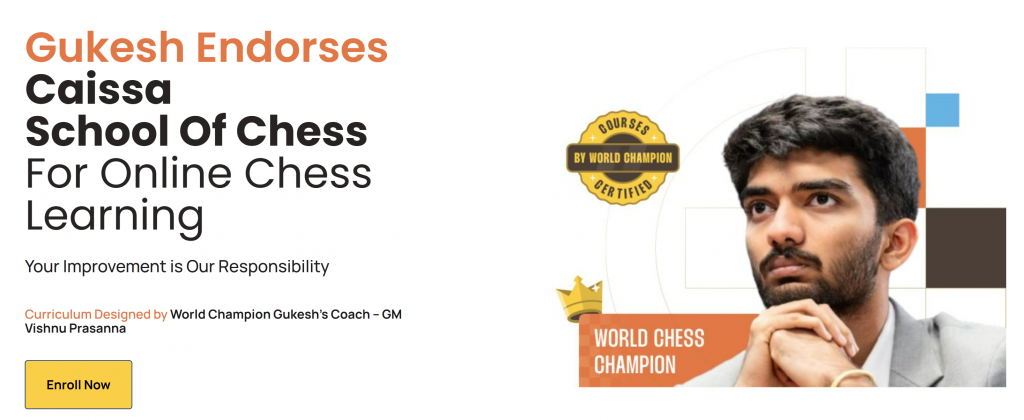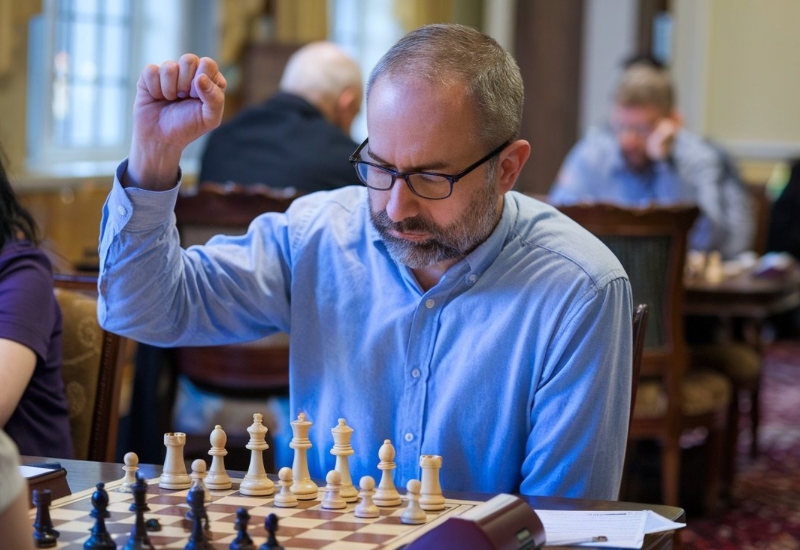To beat a high-rated chess player, you have to approach each game with confidence, embrace the challenge, keep the right mindset, take a strategic approach, and be willing to take calculated risks. Imagine yourself as David against Goliath. In chess, a higher-rated chess player is like the giant – they might have more experience, sharper tactics, and a larger arsenal of strategies. But just like David, the right mindset and a calculated strategy can level the playing field. So, how to beat someone in chess with a high rating?
7 Tips To Beat High-Rated Chess Players
Mindset and Intention: Setting the Right Foundation
Approach Games with Confidence
Confidence isn’t just about believing in your potential to win; it’s about actively engaging in each move to seek victory. Instead of focusing on your opponent’s rating, concentrate on the board and your plans. Remember, a high rating doesn’t guarantee perfect play. Many higher-rated chess players make mistakes, especially if they’re under pressure or face unexpected moves.
Tip: Visualize your victory as you begin each game. Picture yourself navigating challenges, overcoming threats, and ultimately delivering the checkmate.
Embrace the Challenge
Approaching the game as a learning experience can reduce performance pressure. Treating each match as an opportunity to gain experience and insight can help ease your nerves, letting you focus on improving your play rather than fixating on the outcome. Embrace the idea that every move is a learning opportunity, regardless of the result.
Tip: The beauty of chess is that even grandmasters can lose to lower-rated players. Remember that upsets happen because chess is a dynamic game. Your opponent’s rating only reflects their past performances, not the outcome of your game.
Strategic Approach: Outwitting Your Opponent
Trust Your Intuition and Play Actively
When facing a higher-rated chess player, avoid playing too passively. Higher-rated chess players excel in exploiting weaknesses, so being overly cautious may lead you to become reactive rather than proactive. Trusting your intuition, especially in unfamiliar positions, allows you to play to your strengths and create positions where your opponent might be less comfortable.
Create Positions That Induce Mistakes
Higher-rated chess players often expect standard play and rely on certain assumptions. If you create positions they’re unfamiliar with, they’re more likely to make mistakes. This doesn’t mean you should play recklessly, but rather that you should seek unorthodox strategies, surprising moves, and unusual structures. For example, opting for lesser-known openings can push your opponent into positions they’re less comfortable with.
Tip: Consider using offbeat openings like the Pirc Defense or the Albin Countergambit. These choices can throw higher-rated chess players off, forcing them to think on their feet rather than rely on memorized lines.
Learning from Experience: Post-Game Analysis
Analyzing Past Games
Post-game analysis is essential, especially when you’re trying to identify strategies that work against stronger opponents. Spend time reviewing the game, looking for moments when you held an advantage or areas where you could have improved.
Value of Playing Complex Games
Higher-rated chess players thrive in simple, clear-cut positions. By embracing complexity, you increase the likelihood of creating situations where both players are more prone to errors. Complex games with multiple tactical motifs and hidden traps can lead to more surprises and potential errors from your opponent.
Tip: If you’re unsure where to start, experiment with strategies that introduce dynamic imbalances, such as unbalanced pawn structures or piece sacrifices for positional gains.
Common Pitfalls to Avoid

Avoid Playing Too Defensively
When up against a higher-rated opponent, it’s natural to want to play defensively. However, if you’re constantly reacting to their moves, you’ll lose the initiative and give them control over the game. Passive play only strengthens your opponent’s position and reduces your chances of capitalizing on their mistakes.
Tip: Defensive play should be balanced with counterattacking moves. A strong defense can turn into an offense, especially if you’re actively looking for opportunities to retaliate.
Don’t Settle for a Draw in a Strong Position
It’s easy to feel relieved when you’re holding your ground against a higher-rated chess player, and settling for a draw can be tempting. But if you’re in a strong position, go for the win. Draws may feel safe, but they don’t build the same confidence or provide the same experience as pushing for victory, especially when you’ve worked hard to gain an advantage.
Tip: Instead of accepting a draw when you’re up a pawn, aim for an endgame that maximizes your advantage. Don’t hesitate to keep pressing if you sense a chance for victory.
Taking on higher-rated chess players often requires a bold approach, leveraging aggressive play and creating dynamic imbalances to disrupt their rhythm. By focusing on active positions and seeking opportunities to pressure their defenses, you increase their chances of making errors. Introducing imbalances forces your opponent to recalibrate, making each move more complex and tiring.
Aggressive Play and Dynamic Imbalance
Evaluate Positions Actively
To increase your chances against higher-rated chess players, stay vigilant for opportunities to play aggressively. Keep an eye on weak squares, isolated pawns, and other vulnerabilities in your opponent’s camp. By focusing on proactive moves, you can create pressure that forces them to think more carefully, which increases the chance of errors.
Example: If your opponent’s king is left slightly exposed, consider moves like queen or knight maneuvers that challenge their safety and open up attack lines.
Use Dynamic Imbalances
Creating dynamic imbalances – such as sacrificing material for positional advantages or exploiting asymmetrical pawn structures – can be especially effective against higher-rated chess players. These imbalances force both players to work through complex calculations, making it difficult for your opponent to rely on standard moves or experience alone.
Tip: Dynamic imbalances introduce uncertainty. Even if your opponent eventually finds the best move, you’re making them spend time and energy on each calculation, increasing their chances of fatigue or error.
Confidence and Persistence: The Long-Term Game
Maintain Confidence Regardless of Rating
When you maintain your confidence, your gameplay reflects it. Confidence keeps you focused, allowing you to assess each position calmly and make the best decisions possible. High-rated players are also human and prone to mistakes, especially if they sense you’re undeterred by their rating.
Tip: Remind yourself that a high rating only means your opponent has a history of success. It doesn’t predict the outcome of your match.
Learn from Losses and Keep Improving
Losing to a higher-rated opponent can feel discouraging, but the lessons you gain are invaluable. Each loss is an opportunity to understand where you need improvement, whether it’s endgame strategy, tactical awareness, or opening preparation. Analyzing losses helps you build resilience and identify areas for growth, ultimately making you a stronger player.
Example: After each game, make it a habit to review mistakes with a chess engine or mentor. Understanding why you lost is crucial to avoiding similar mistakes in future games.
Embrace the Challenge and Keep Growing

Winning against higher-rated chess players requires a mix of confidence, strategic creativity, and relentless focus. By approaching each game with the intention to win and using calculated tactics to create dynamic positions, you increase your chances of success. Remember to treat every game as a stepping stone, learning from each experience, and building on your strengths.
Ready to try these strategies? Platforms like Caissa App, the AI-personalized chess coach, can help you evaluate your games, track monthly progress, and guide your improvement. Play A Free Game Now!

The Caissa School of Chess offers advanced, personalized training to help you build confidence, develop creative strategies, and stay focused under pressure. With expert guidance from Grandmaster coaches who have coached chess prodigies (like Gukesh, Arjun. Raunak & Nihal), Caissa School of Chess prepares you to face even the toughest opponents with the mindset of a giant slayer. Join Caissa and start your journey toward mastery today!






